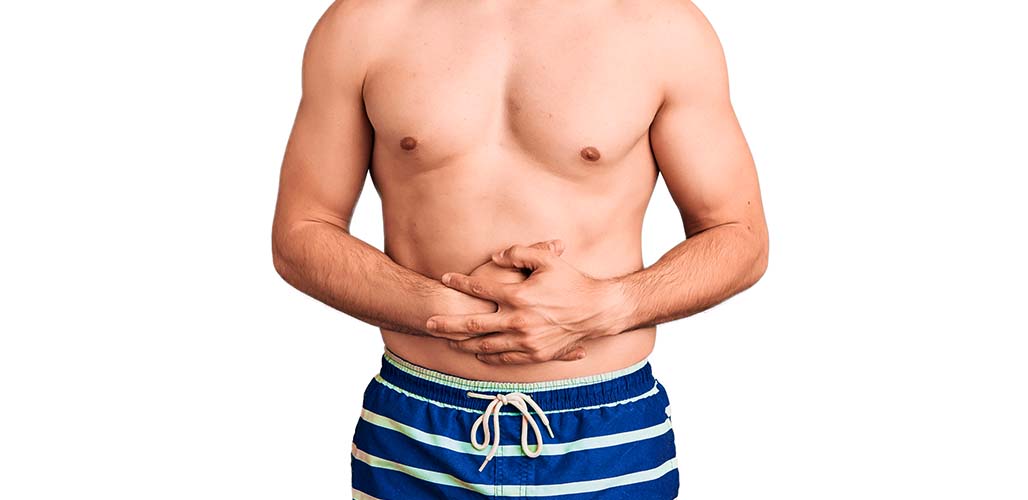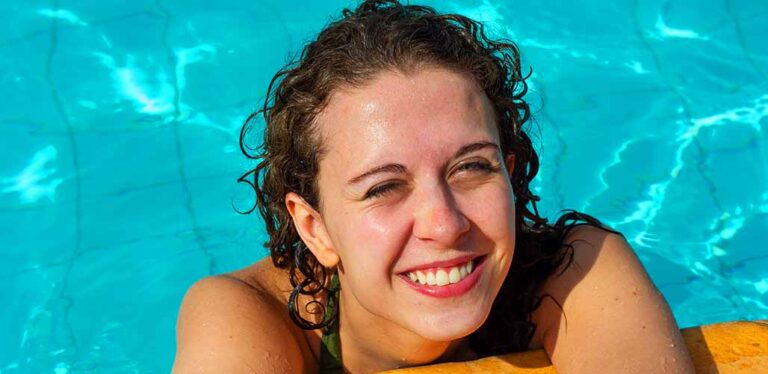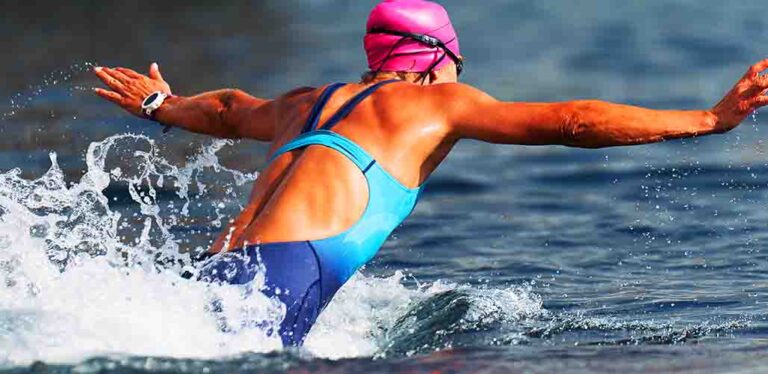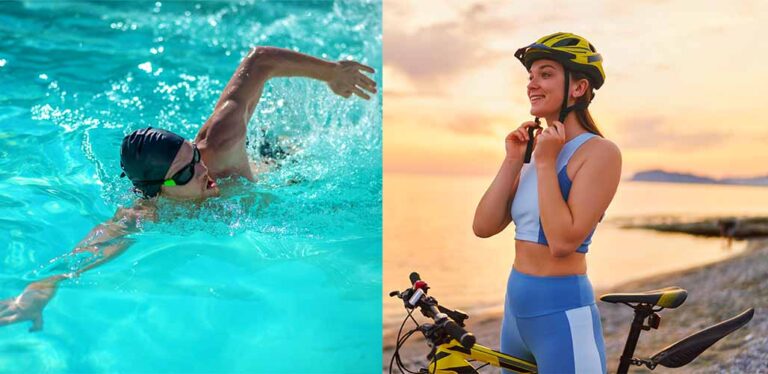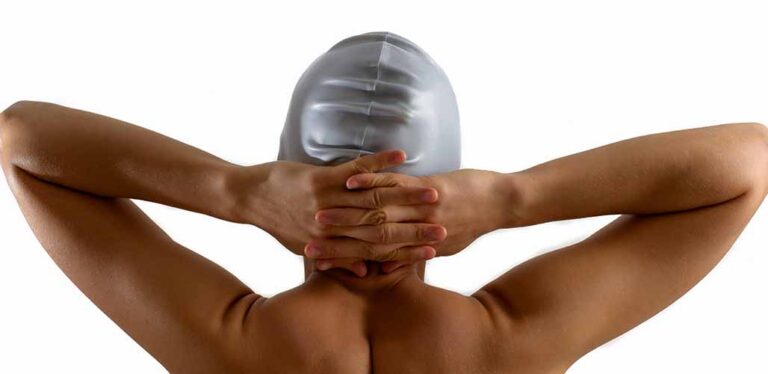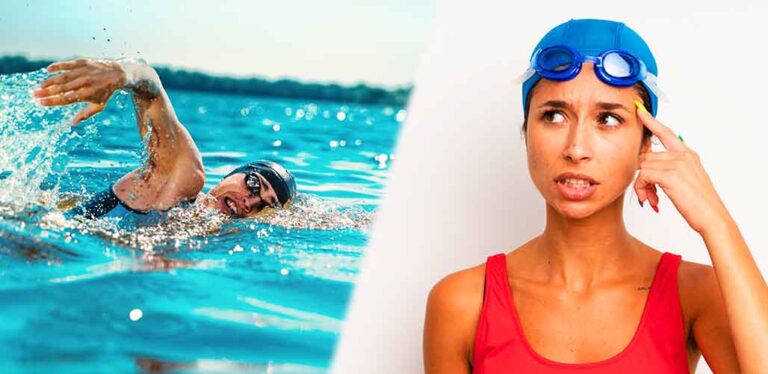Why Does My Stomach Hurt After Swimming?
Why does my stomach hurt after swimming? Before swimming lessons as a kid, my mum would always warn me not to eat before getting in the water, otherwise I’d get stomach pains. But, there are actually several things that can cause stomach pains after swimming. It can even be the case that you’ve worked your abs too hard during your workout! Luckily, stomach pain doesn’t have to ruin your summer plans. In this guide, I’ll take a closer look at what causes stomach pains after swimming and how you can beat the discomfort by changing your habits before getting in the water.
Contents
- Why does my stomach hurt after swimming?
- Does chlorine in water cause a stomachache?
- Weak abdominal muscles
- Swallowing too much air
- Your eating habits before swimming
- Checking for injuries
- Tips for avoiding stomach pain after swimming
Why Does My Stomach Hurt After Swimming?
If you’ve recently noticed that your stomach begins to hurt after you leave the water, you’re likely wondering what the culprit of this mystery pain is. Most people don’t naturally feel sick after they get out of the pool. So, it’s a good idea to learn what the issue is. Several factors can cause stomach pain after swimming, including:
- What you ate before swimming
- How long ago you ate something
- How hard you worked your abs in the water
- Swallowing too much air
- Swallowing lots of chlorinated or salty water
- An injury
Some of these issues are more serious than others. And, some are easily solved! So, you don’t necessarily need to panic if you’re experiencing stomach pains after swimming. Let’s take a closer look at each of these potential causes of stomach pain.
Does Chlorine in Water Cause a Stomach Ache?
While rarely the culprit of an upset stomach after swimming, high levels of chlorine in pool water can pose a health risk. Chlorine is regularly used in recreational swimming pools to avoid water-borne illnesses and to ward off dangerous bacteria. But, if enough chlorine water is ingested during swimming, you can experience an upset stomach.
Chlorine poisoning can lead to vomiting and intense stomach pain. If these symptoms strike, it’s best to seek immediate medical attention. But, it’s very unlikely that you’ll get chlorine poisoning from the levels in swimming pools. People typically don’t swallow enough pool water to become sick from it. If you’re concerned that you gulped down too much you can get out of the pool and rest for a bit to ensure you stay symptom-free.
Younger children are at a higher risk of swallowing water, especially as they are learning how to swim and how to control their breathing while in the pool. It’s not uncommon for a child to accidentally take in a bit of chlorinated pool water while they cannonball into the deep end.
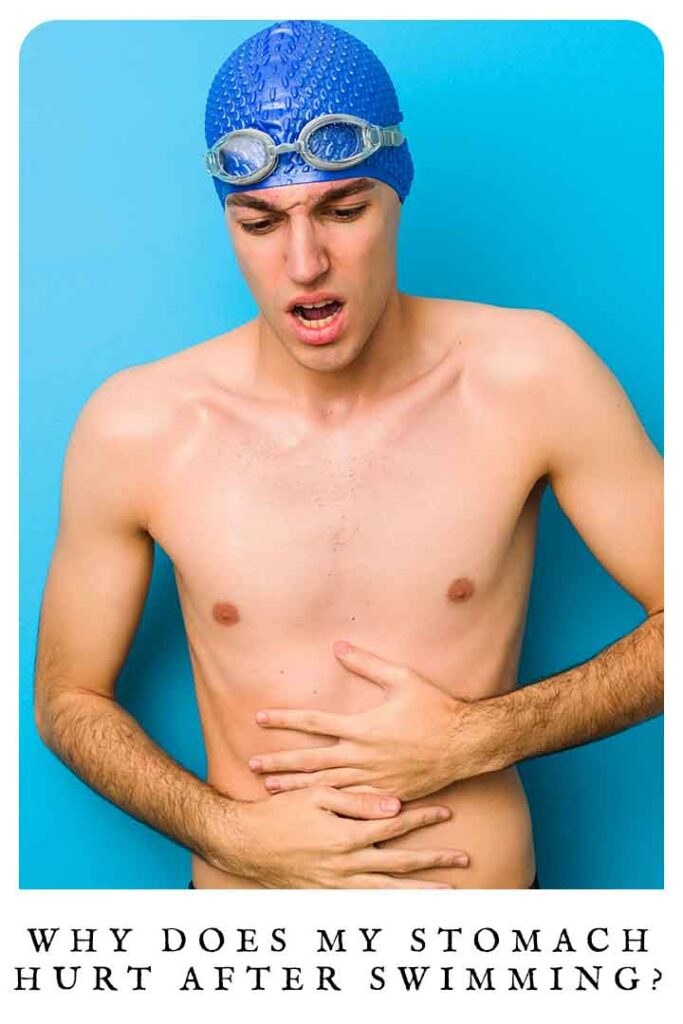
Swallowing Sea Water Might Also Cause Stomach Pains
In a similar fashion, swallowing salty sea water can also cause pains and nausea if you do it in large amounts. There are steps you can take to reduce this likelihood. Such as swimming with your head above water, and staying close to shore. Regular breaks from swimming will also help to prevent swallowing too much water.
Weak Abdominal Muscles
If you’re feeling soreness in your abdominal and core muscles, this may be chalked up to strenuous exercise in the pool that leaves your body feeling achy. This isn’t anything to be concerned about and it can be relieved by adding some additional core exercises throughout the week to strengthen the underutilized muscle group.
Heating pads and cold pack therapy can help ease soreness and if it persists, you should consider taking some time away from the pool to allow your muscles a chance to heal. You should never strain muscles past the point that they don’t have time to recuperate, as this can cause serious injury.
Try adding a stretch routine before and after your swimming session. This will help you to warm up and cool down your muscles, and reduce the chance of injuring and straining your abs.
Swallowing Air Whilst You Swim
Sometimes, it’s difficult to not gasp for breath when you’re diving into the water. Swallowing air in this manner can cause stomach pains, due to the excess air bubbles building up in the stomach. This generally relieves itself within an hour or two and using a heat pack can help to relax the affected stomach muscles.
Your Eating Habits Before Swimming
Eating a meal before swimming can lead to a bloated stomach and cramping. The stomach is often left feeling full, tired, and uncomfortable. To avoid this, simply watch your food intake 30 minutes to an hour before you jump in. A small snack to energize won’t cause any issues. But, avoid large meals.
Similarly, it’s not a good idea to avoid eating altogether for hours before swimming. Swimming hungry can affect your performance, and can lead to stomach pains. So, a small snack at least 30 minutes before swimming is your best idea. Make sure you remain hydrated throughout your workout, too.
Checking for Injuries
If your stomach suddenly hurts a lot after swimming, there’s always a chance you have pulled a muscle or strained something. This is common if you’re learning a new swimming stroke or trying to beat a personal record. Stretching before and after swimming can help to reduce this risk. But, if you’ve injured yourself during swimming, you should take a break to heal before getting back in the water.
Tips for Avoiding Stomach Pain After Swimming
For those who are consistently experiencing stomach pain after getting out of the water, there are a few recommended steps to determine the culprit of this discomfort. Swimmers can try out 1-2 of the options below before they find what may be the cause of their post-swim stomachache.
1. Consider What You Consume Before Swimming
If you’re suspicious that the source of your stomach pain is due to an excessive intake of air, you should try to relieve this bloating by avoiding carbonated drinks and trying not to gulp in the air while you’re going underwater. Swimmers are also encouraged to avoid eating an hour or two before swimming, as this can trap air in the stomach.
2. Consider Your Breathing Techniques
While in the water, work on controlling your breathing pattern. Take smaller breaths of air, instead of large gasping breaths. For example, if you’re swimming laps you may find that you habitually take a large breath every third stroke. Take a smaller, half-breath, every stroke instead.
During your swim, try focusing on breathing through your nose. This can help prevent air bubbles from being sent down to your stomach. Altering your breathing pattern may not feel natural at first. Over time, the body will become accustomed to this way of breathing and you’ll find that you don’t have any stomach aches after swimming.
3. Stretch and Hydrate
If you find that you experience stomach cramps after swimming, you can implement a simple stretching routine. Stretching out the abdominal muscles can relax them to the point that they stop becoming tense once you’re in the water. This can be a 5-10 minute exercise that saves you a great deal of discomfort later on.
Cramps can also be due to dehydration, so ensure that you’re getting fluids before swimming, especially if it’s a hot and sunny day. Snacks that are high in potassium, such as apricots, peaches, and bananas can also be a natural way to alleviate cramping.
Why Does My Stomach Hurt After Swimming? A Summary
Stomach pain can be a relatively common symptom for people when they step out of the pool. Luckily, this side effect can be quickly ameliorated when the right habits are put into place. Avoid heavy meals before swimming and try to change your breathing habits in the pool.
Refraining from food and carbonated beverages an hour or two before diving in can save you from stomach pain later. Swimmers who take gulps of air when they come up to the surface are often trapping painful air bubbles in their stomachs, resulting in an achy belly once you’re on shore. In rarer cases, stomach pains can be the result of bacteria living inside the water. These can make their way into your system and wreak havoc by causing stomach pain, fever, and vomiting, and may require a trip to the doctor’s office.
More Swimming Help Guides
- Is it safe to jump in the shallow end?
- Can breaststroke get me fit?
- Can swimming reduce fat levels?
- Will floats help improve swimming technique?
- Is it bad to feel strange after a swim?
References
- ‘Chlorine Poisoning’, Medicine Plus

